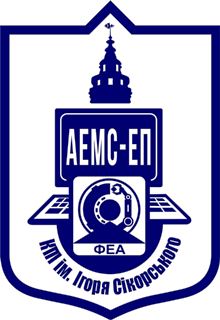| Subject / Educational component | Identification, estimation, adaptive control in electromechanical systems |
| Educational level | Second (Master’s degree) |
| Year of study, semester | First year, second semester |
| Number of ECTS credits | 120 hours, 4.0 credits of ECTS |
| Language of study | English |
| Department | Automation of Electromechanical Systems and Electrical Drives |
| Assumed knowledge and prerequisites | – basic knowledge in Electric Machines and Theory of Automatic Control;
– basic technical English and English terminology in Electrical Power Engineering. |
| The scope of the course | The scope of the course includes:
– fundamentals of adaptive and robust control; – application of the adaptive and robust control in modern electrical drives and electromechanical systems; – identification of parameters, self-commissioning, self-tuning, estimation of variables using observers, sensorless control of electrical drives and electromechanical systems; – design methods for modern AC drives based on induction and synchronous motors; – full scale simulation tests on the base of developed simulation platform. |
| Rationale | Modern electrical drives and electromechanical systems from world leading producers are designed using different approaches of nonlinear control, such as: identification, state estimation, robust and adaptive control. These knowledge are required for understanding of systems operation, professional tuning in the industrial field and for design of the high performance drive systems on the stage of development? Investigation and testing. |
| Learning outcomes
|
– To study a general theory of adaptive and robust control, technology of such theory application for electromechanical energy control;
– To design and investigate modern electrical drives and electromechanical systems of wide spectrum of industrial and technological applications; – To obtain professional knowledge and skills in electromechanical systems selection, their tuning and industrial implementation. |
| Competencies and skills
|
It is expected that students will have competencies in important stages of electromechanical systems design, investigation for high technological implementation.
|
| Instructional Materials: | Syllabus;
– Student Achievements’ Credit Assessment System; – package of the simulation programs and electronic lectures;
|
| Mode of delivery: | – Lectures ;
– interactive discussions in groups (during lectures or consultations); – individual classes with individual tasks (if envisaged in the specific syllabus); – individual and/or group consultations; – self-study activities of the students. |
| End-of-semester control: | Final exam |










